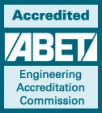THE World University Rankings by Subjects in 2021, ITB Got the Best Ranking in Computer Science
By Adi Permana
Editor Adi Permana

BANDUNG, itb.ac.id-- Times Higher Education (THE) ranking agency has released the ranking of universities in the world in 2021. Bandung Institute of Technology is ranked 1,000+ or ??is the second-best university in Indonesia according to THE World University Rankings.
Secretary of the ITB Rating Evaluation Team, Dr.Eng. Paramashanti said that the Times Higher Education World University Rankings (WUR) had two assessment categories: THE (Overall) WUR and THE WUR by Subjects.
The details of ITB's ranking for THE WUR by Subjects, namely 601+th for Business and Economics; 501-600th for Computer Science; 601-800th for Engineering; 801+th for Life Sciences; and 801-1000 for Physical Sciences. Based on the ranking of THE WUR by Subjects, ITB is the best in computer science.
- The lecturer at Ocean Engineering ITB, Faculty of Civil and Environmental Engineering, explained that there are 7 (seven) grading criteria in THE WUR ranking. The seven criteria are:
- The university must have at least 1000 relevant publications in the last 5 (five) years and have more than 150 relevant publications each year;
- The university must conduct teaching at the undergraduate level, indicated by the number of graduates awarded a bachelor's degree. Universities that only provide postgraduate teaching or education are not included in the ranking;
- The university does not only focus on one particular field (subject), which is indicated by more than 80% of publications having the same area;
- The university must have provided several data for all indicators for the year of ranking;
- The university must not have more than two critical scores (zero or not submitting) on ??the data submitted through THE portal, which includes data on academic staff (local and international), research staff, local and foreign students, number of graduates, institutional income, research income, industry income;
- The University must submit data for at least 1 (one) relevant field or subject; and
- The university is not included in the list of special exemptions that cannot be included in the ranking.
Besides, THE WUR assesses university rankings based on 5 (five) leading indicators, namely teaching (30% total weight), research (30% total weight), citation (30% total weight), international outlook (7.5% total weight), industry income (total weight 2.5%).
THE itself obtains data on the achievement of a university's indicator through 3 (three) methods, namely:
- Data submitted by the university through THE portal, including information on the number of academic staff, students, foreign students, foreign lecturers, income.
- Bibliometric through Elsevier's Scopus database for data on the number of publications and citations.
- Surveys for teaching and research reputation data.

The survey is conducted by THE annually selected by Elsevier. "Apart from that, concerning income data, THE also takes into account data on country-level differences to obtain the same level of comparison for all universities," she said.
According to Paramashanti, indicators from various rating agencies will become a reflection for ITB to continually improve. ITB will carry out a continuous transformation to increase the ranking so that our campus will be a Globally Respected and Locally Relevant University.
There are 3 (three) main programs related to efforts to improve ITB ranking, namely the study program's internalization, enhancing the university's reputation, and increasing competitiveness. ITB will internalize the process through decentralization, including a ranking indicator improvement program, to related UKA (Academic Work Units) and UKP (Supporting Work Units), or to new task forces.
Paramashanti conveyed that the program decentralization will also be followed by improvements in business processes, databases, information systems of each unit in carrying out these programs, and advances in data integration and information systems on the institutional scale. "The target achievement of this program is to improve the capacity of providers (enabling capacity)," Paramashanti stated.
Reporter: Adi Permana
Translator: Billy Akbar Prabowo (Metallurgical Eng. 2020)

.jpg)
.png)
.jpg)
.jpg)
.jpg)


